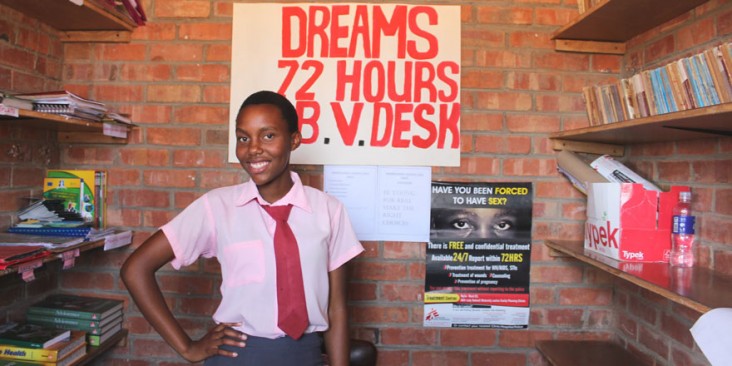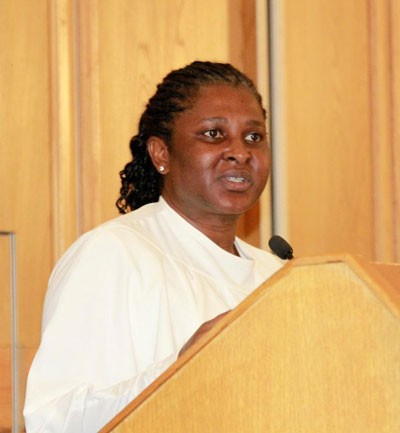- What We Do
- Agriculture and Food Security
- Democracy, Human Rights and Governance
- Economic Growth and Trade
- Education
- Ending Extreme Poverty
- Environment and Global Climate Change
- Gender Equality and Women's Empowerment
- Global Health
- Water and Sanitation
- Working in Crises and Conflict
- U.S. Global Development Lab


Nagesh Borse
Senior Technical Advisor for Research and Evaluation
Nagesh Borse is a Senior Technical Advisor in the Research Division of the U.S. Agency for International Development's (USAID's) Office of HIV/AIDS. He leads technical coordination for the Microbicide Product introduction initiative (MPii) for new HIV prevention products and is a technical advisor on health systems research projects supported by USAID.
Recent Blog Posts
- Intriguing Insights from CROI 2017
Elizabeth Russell - February 28, 2017 - ADVANCE: Stretching Development Dollars and Improving HIV Treatment
Emily Harris - January 18, 2017
Recently, I watched a movie called Queen of Katwe, which tells the true story about a girl named Phiona Mutesi born in Katwe, the largest slum in Kampala, the capital city of Uganda. After her father's death due to AIDS, she dropped out of school. During her daily struggles, Phiona manages to discover a project for youth run by the Sports Outreach Institute and becomes one of the first titled female chess players in Ugandan chess history. There are many success stories like Phiona's that bring hope to young, aspiring girls living in the challenging environments where USAID is working to realize the goal of an AIDS-free generation.
Every day in Eastern and Southern Africa, almost 1,000 new HIV infections occur among 15–19 year olds, highlighting the significant need for new approaches to prevent adolescent girls and young women (AGYW) from contracting HIV. Since 2014, many new initiatives, including the U.S. President's Emergency Plan for AIDS Relief's (PEPFAR's) Determined, Resilient, Empowered, AIDS-free, Mentored, and Safe (DREAMS) initiative and the Microbicide Product introduction initiative (MPii), were launched to accelerate the introduction of biomedical interventions. Very recently, UNAIDS, PEPFAR and their partners initiated the Stay Free Super-Fast-Track Targets with the goal of reducing new HIV infections among AGYW globally to less than 100,000 annually by 2020, compared to the current 400,000 new infections.
There are several proven interventions to help support the diverse health needs of AGYW, including comprehensive school-based sexuality education, community awareness and engagement, and provision of quality and youth-friendly health services.
To discuss and build upon these interventions, USAID in collaboration with PEPFAR, the World Health Organization and UNAIDS recently co-convened the Eastern and Southern Africa Regional Consultation in Namibia, which I attended. The Consultation brought together various stakeholders to propose strategies to identify and scale up proven biomedical and structural interventions to support the needs of AGYW in the region. It was attended by 180 participants from Botswana, Kenya, Lesotho, Malawi, Mozambique, Namibia, South Africa, Swaziland, Tanzania, Uganda, Zambia and Zimbabwe.
Through plenaries and country working groups, regional participants worked to deepen their understanding of ongoing efforts to link HIV prevention and sexual and reproductive health programs for AGYW.

Key presentations were made by the First Lady of Namibia who also serves as the UNAIDS special advocate for AGYW, the Namibia Minister of Health and Social Services and the U.S. Ambassador to Namibia, who each offered eloquent, frank and personal examples about the critical importance of reaching and engaging young people and highlighted roles of different stakeholders in addressing their issues.
USAID's current work under DREAMS and MPii supports the implementation of country-led HIV prevention and adolescent health programming using multisectoral approaches at the family, community, sub-national, national and regional level to meet multiple needs of AGYW in the region. Through MPii, USAID has supported the development of tools and resources to help countries in the region to mobilize resources to accelerate implementation of biomedical interventions specifically designed for AGYW and integrated with sexual and reproductive health services.
As the African proverb goes, "It takes a village to raise the child." To support these young people in sub-Saharan Africa and to have many more success stories like Phiona Mutesi's, the Consultation underscored the importance of everyone working together at the community, national, regional and global level to achieve an AIDS-free generation – something my work at USAID continually strives to do.







Add new comment